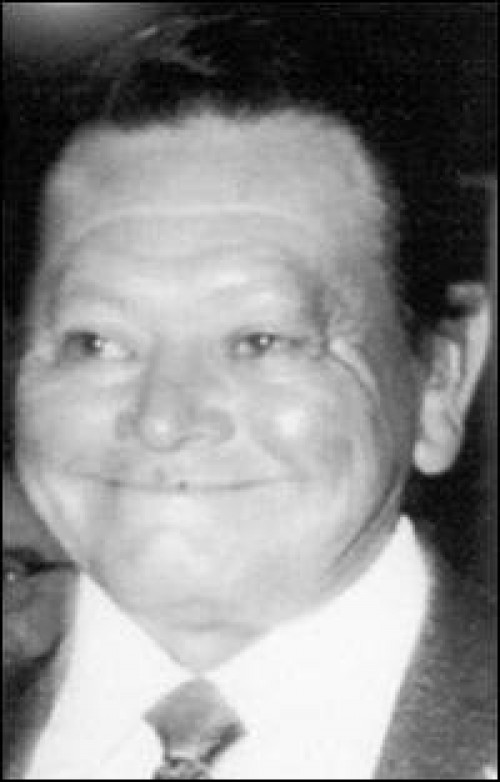
Dorothy Glover
July 30, 2007
Horace Scott
August 1, 2007Eighty-five percent of all Louisiana criminal defendants rely on the indigent defense system.
But, Louisiana has had one of the worst indigent defense systems in the nation since the U.S. Supreme Court ruled in the landmark Gideon v. Wainwright case in 1964 that indigent defense “in criminal courts are necessities, not luxuries.”
Lawmakers, lawyers, judges and others have been working to reform the state’s system for almost as long as it has been in existence.
Louisiana has been the oddball state in the union, choosing to predominantly fund its indigent defense system through “alternative sources of revenue,” which come from court costs and traffic tickets.
The recent passing and signing into law of House Bill 436 by Rep. Daniel R. Martiny, R-Metaire, signifies a serous step toward reforming the system.
What’s Broken?
The Louisiana Justice Coalition conducted an audit in 2005 of the state’s indigent defense system, grading it along the 10 standards outlined by the American Bar Association. The state failed in eight of the 10 categories.
It found attorneys were swamped with cases. Oversight was almost nonexistent. Funding was problematic. No uniformity existed between the 41 judicial districts. And the list of faults continued.
The Louisiana Justice Coalition Director Heather Hall said a report released in 2004 by the National Legal Aid and Defenders Association cited the two main problems with the state’s system. They were a lack of funding and resources and a structure lacking accountability, training, supervision and freedom from political interference.
Hall also said the national standard for caseload limits, as set by the National Advisory Commission on Criminal Justice Standard, is 150 felonies, 200 juvenile cases or 400 misdemeanor cases per year.
Some of the judicial districts in the state had defenders carrying caseloads well in excess of these national standards.
Hall pointed to a report by the National Legal Aid and Defenders Association on the indigent defense system in Avoyelles Parish. In that parish, one public defender would handle the workload of more than six full-time attorneys, while only working part-time.
Or assuming 1,387 hours of work a year, indigent clients facing felony charges were afforded on average about two hours of the attorney’s time, including those clients charged with capital offenses, according to a report on the coalition’s Web site.
“I would say that every single district across the state has a caseload problem,” said Hall.
Complicating the caseload problem was the fact attorneys would be forced to either accept more cases or lose their jobs in most situations.
“There was very little room for people to get out from cases they couldn’t manage,” said Hall.
House Bill 436’s sponsor, Martiny, was appointed to the Louisiana Indigent Defense Services Task Force when it was formed, because he was the chairman of the Criminal Justice Committee at the time.
The task force was created by House Resolution 151 (Sen. Lydia Jackson, D-Shreveport) in 2003, but did not meet that year. After two years, he replaced Jackson as the group’s chairman.
The state legislature formed the task force to examine the state’s indigent defense system and make legislative recommendations.
“When I got to be chairman, for the last about 18 months, we worked. I made it my personal goal that it was going to be the last thing I did as a member of the House… to fix this thing [indigent defense system],” the Metairie lawmaker said.
Martiny quickly recognized the problems afflicting the system.
“What I saw, while we allowed for court costs and fines on the local level to be part of the funding mechanism, the system itself was not uniform. We had 41 different judicial districts and each district operated in a different way,” he explained. “When people started taking us to task on the issue of whether or not we were adequately funding it, the existing board [the Louisiana Indigent Defense Assistance Board] really didn’t have the tools to determine that fee.”
Martiny compared the situation to owning a fast food chain with individual stores having individual managers running the stores as they choose.
“If you owned 41 different Burger Kings and you just let the managers run them the way they want, it would be virtually impossible for you to get a grasp on whether or not you were running them in the right way,” he said.
Martiny added that even though the vast majority of the 41 systems were not doing anything wrong, the fact of the matter was if a district needed more funding from the legislature, the lawmakers would have to ask the appropriations committee to look into whether the district was being adequately funded.
“We didn’t want them to have 41 different standards they had to go through to determine whether or not these systems were being run efficiently,” he said. “That’s why we changed the system. We did away with the local boards as policy-making boards.”
National Legal Aid and Defender Association member David Carroll evaluates indigent defense systems around the country.
“The indigent defense crisis is a national problem. Certainly Louisiana was one of the big problems nationally because of the lack of standards and this type of funding source [court fees and traffic tickets],” said Carroll. “But there are just as many problems in New York State and Nevada.”
Carroll said the state had a complete lack of accountability in the system. There was no way to know if a public defender wasn’t performing and no way to correct any deficiency.
He also said the local indigent defense boards had members that weren’t qualified to judge quality overseeing the system.
The LJC Director Hall explained, before 2005, the districts weren’t even required to keep caseload statistics.
Carroll said he thinks about 90 percent of all criminal defendants in the state use the indigent defense system because of the state’s high poverty rate, whereas on the national level, this number hovers around 85 percent on average.
“If you don’t provide adequate counsel on all those cases, you’re going to have endless appeals and retrials and problems and all sorts of things,” said Carroll.
How are they fixing it?
House Bill 436 is just a piece of the reform puzzle, albeit a very big one. Serious reform to the state’s indigent defense system has been ongoing since 1994.
But House Bill 436 addresses the two major problems contributing to the state’s woeful indigent defense system, funding and oversight.
Carroll said with the reform the state will compare well to most of other states that have created statewide systems.
He said the demand for standards in all sort of categories, like workload, will make the new system very viable and strong system.
“Prior to that, it was very problematic,” said Carroll. “In our report we said that they were in violation of both the federal and state constitutions in regards to the delivery of the right to counsel. And they were the lone state that tried to fund the majority of representation on whatever money happened to come in off of traffic tickets.”
He called the reform a huge step forward in the sense that the state is now primarily responsible for funding the indigent defense system, instead of primarily relying on the funding generated at the local level.
The legislation increases the state funding for the state’s indigent defense system from $19 to $29.5 million.
With the addition of the funding generated in local districts of $22 million the total amount of funding for the system is around $51.5 million.
“The legislation is a really significant step forward for the delivery of public defense services for the state, for sure,” said the LJC Director Hall. “This legislation really addresses both of those issues.”
Hall said in 2004 the state contributed about $7 million to indigent defense. In 2005 the amount increased to $10 million. And in 2006 the state went up to $20 million.
“That’s a huge increase,” she added. “That’s four times where we were four years ago.”
The legislation also creates a new statewide public defender board, the Louisiana Public Defender Board.
More simply, it just changes the name of the Louisiana Indigent Defense Association Board to the LPDB and gives it oversight authority to ensure a uniform system throughout the state’s 41 judicial districts.
“One of the reasons behind this legislation was to enforce accountability throughout the state, because you have districts or boards that aren’t doing a damn thing. And that was a problem. There was such a vast disparity in the level of service being provided to the indigent clients throughout the state,” said Louisiana Indigent Defense Board chair Jerri G. Smitko, who practices law in Houma.
Hall said LPDB will be empowered to supervise the indigent defense system in a systematic and uniform way.
The state constitution requires the state legislature to provide a uniform system for securing and compensating qualified counsel for indigents, according to Hall.
“That uniformity issue has been a big issue because up until the passage of HB 436, when you talked about indigent defense in Louisiana you weren’t talking about one system you were talking about 41 systems,” said the LJC director. “Every system was locally supervised by a local indigent defender board. Eighty to 90 percent of its budget came from local court surcharges, what people call the traffic ticket revenue.”
This caused marked differences between districts and the quality of defense they would provide indigents.
“This is my point. If you’re going to follow the constitutional mandate, the first thing you need is a system where these services are delivered in a uniform way. Take into consideration the fact trying cases in Sabine Parish is probably a little bit different than trying them in Orleans Parish. But it also provides us with a uniform way of funding them,” said Martiny.
In a report on the Louisiana Justice Coalition Web site, the average person arrested for a crime in Calcasieu Parish would sit in jail for 186 days before even learning what crime with which they had been charged.
“This new Louisiana Public Defender Board will ensure, or at least to help ensure, some compliance with that uniformity standard by having a real state authority to keep an eye on public defense across the state,” said Hall.
The new board would also have the authority to enforce caseload limits on the districts, added Hall.
The newly empowered state indigent defense board will have the authority to withhold funding from districts that do not meet the uniform standards.
Hall said the new board will also have a lot more flexibility with how it is able to direct funds to the districts. And the board will also have a larger staff to check up on the districts and see that they are complying with the uniform standards.
Also, the board created a statewide, Web-based database to collect and manage information and statistics on indigent cases.
Aug. 15 signals the end of all the local indigent defense boards, as they have been known in the past.
Martiny said there was some concern over House Bill 436 before it passed.
“Everybody was afraid that the state was going to come take their money,” the Metaire representative said.
Martiny used Jefferson Parish as an example. In the bill, there are provisions for regionalizing indigent defense services.
“Jefferson Parish looked at it from the standpoint of they thought were going to be lumped in with New Orleans and that New Orleans was going to be taking their money and they didn’t want that to happen,” he said.
To address this concern, which wasn’t just held by Jefferson Parish, Martiny said two provisions were added to House Bill 436.
One made sure that any money raised at the local level would remain in that jurisdiction.
The other limits a region’s population to 500,000.
Is the fix in?
Martiny also said he didn’t know whether this reform and the increased funding would be enough.
“There are those people who say court costs and fines is not the right way to do it. They’re probably right. But then, what is the right way to do it? Everybody says, ‘Well general appropriations,'” said Martiny. “Well, you got to get the money from somewhere. We could take those same court costs and fines and have them go into the state general fund and then fund it all out of the appropriations bill. But the money has to come from somewhere. “
Louisiana Indigent Defense Board ex-officio member and vice chair Anthony Champagne said he think’s there will be need for an additional amount of funding and admitted everybody knows that.
Martiny said problems are going to arise with the reform, but now there will be uniform standards and accountability.
“Because we’ve had 41 different versions of it, we don’t know [how effective the reforms are],” he said. “This [HB 436] to me is a very good first thought.”
So far, one of the problems caused by the reform comes from one of its slickest improvements, the statewide Web-based program to track indigent cases and public defenders.
The program came online toward the end of last year and the LPDB mandated public defenders input their information for each of their cases into this new system.
This new system, however, may make it difficult to hire the necessary new attorneys the state needs to spread out its caseload and to keep older ones on board.
“With the added burden of continuously inputting information into the Web-based program, I’m seeing some frustration by some of the attorneys. Especially at city court, because we have such a high volume of cases that take a small amount of time,” said the LIDB vice chair, Champagne, who also practices in Houma.
One of the big complaints coming from the attorneys in city court is the time spent putting information into the program takes away from the time they can spend with their clients, according to Champagne.
“I have one attorney down there who’s decided he’s throwing in the towel. He just doesn’t feel like he has the time to input the information,” he said.
Champagne explained inputting information into the Web-based program is very time consuming. But, he said he provides staff support for some his attorneys. So, secretaries do all the inputting for them, making it an almost non-issue.
However, attorneys, who are on contract as overflow, don’t have this staff support. They either have to input it themselves or rely on their private secretaries.
“I’m hiring a full-time secretary [in Terrebonne Parish] to send her down to city court to take that burden off the attorneys, but it’s mandatory that their information go into the Web-based program,” said Champagne.
When the Web-based program first launched, Champagne said it did have some speed problems but those problems have been worked out since.
“But we got to a point early this year where it was taking like 10 minutes to get information in to just one case. So, they added some servers on the central system and it increased the speed tremendously,” he said. “Now when I get on it, it’s very, very quick.”
Editor’s Note: This is the first of a three-part series on the indigent defender system.















